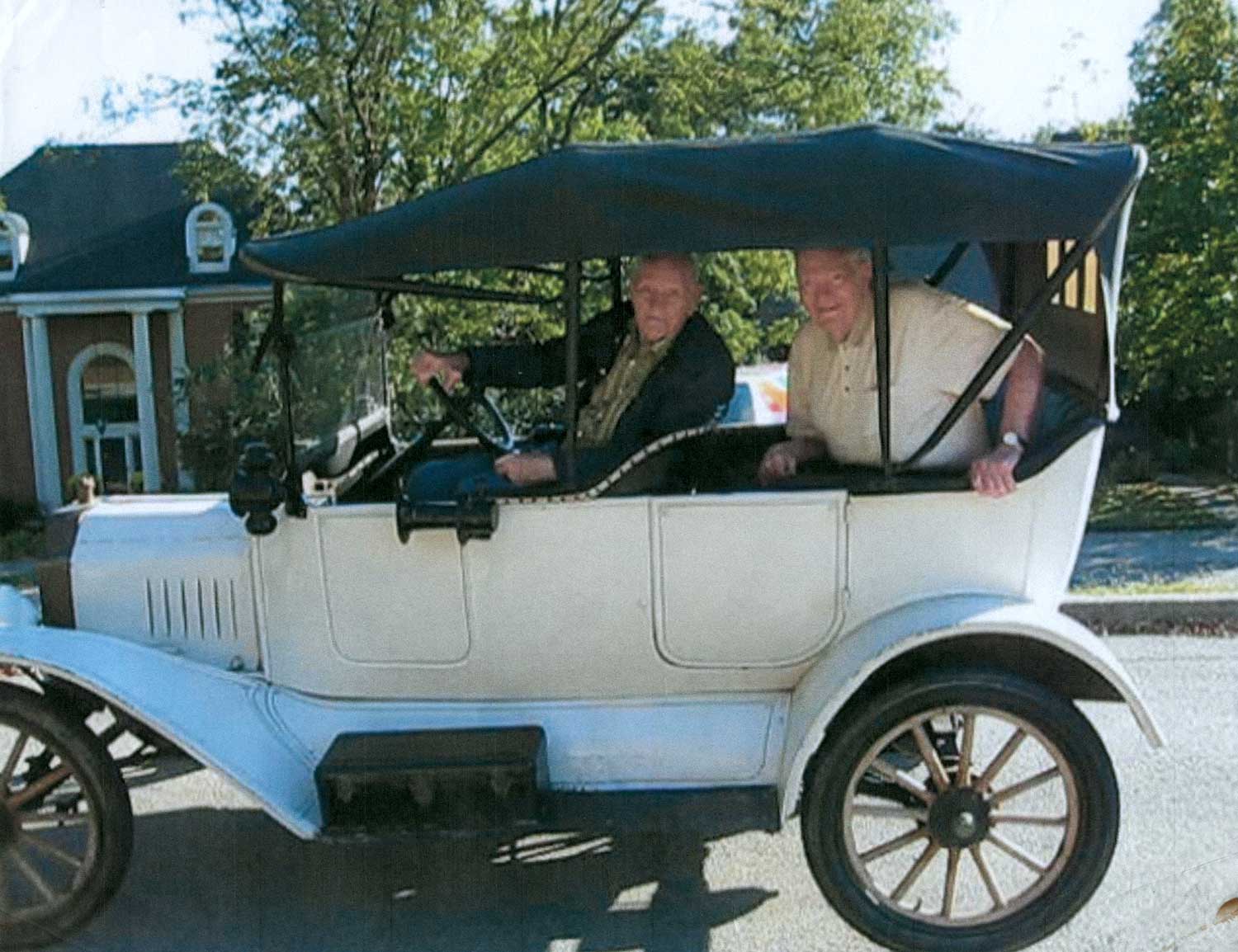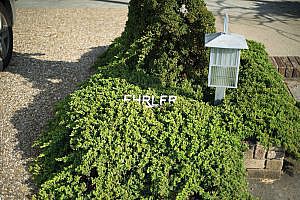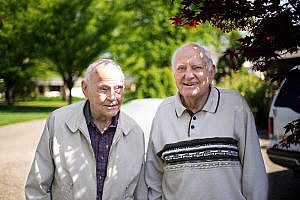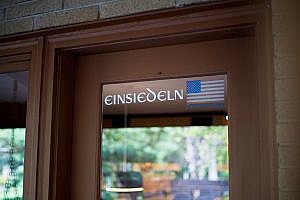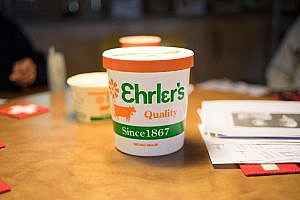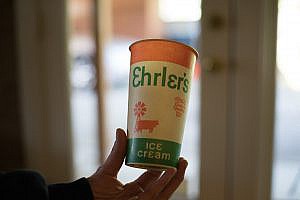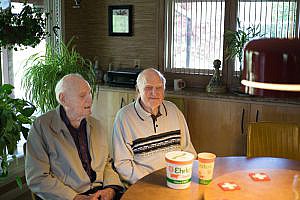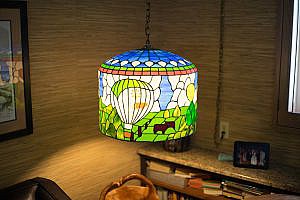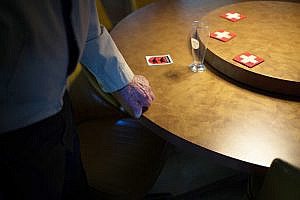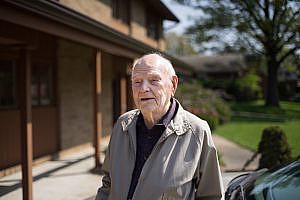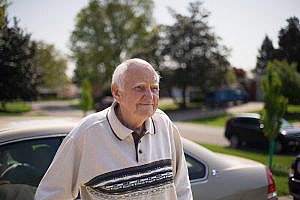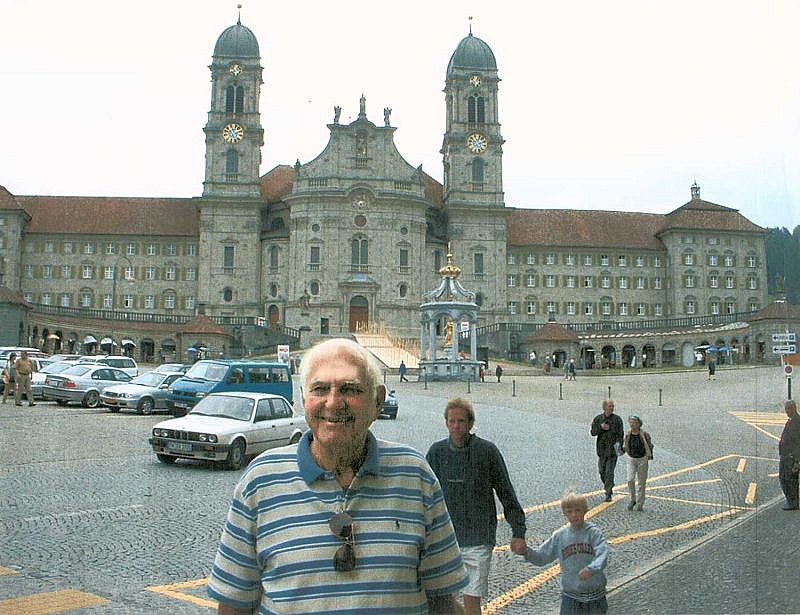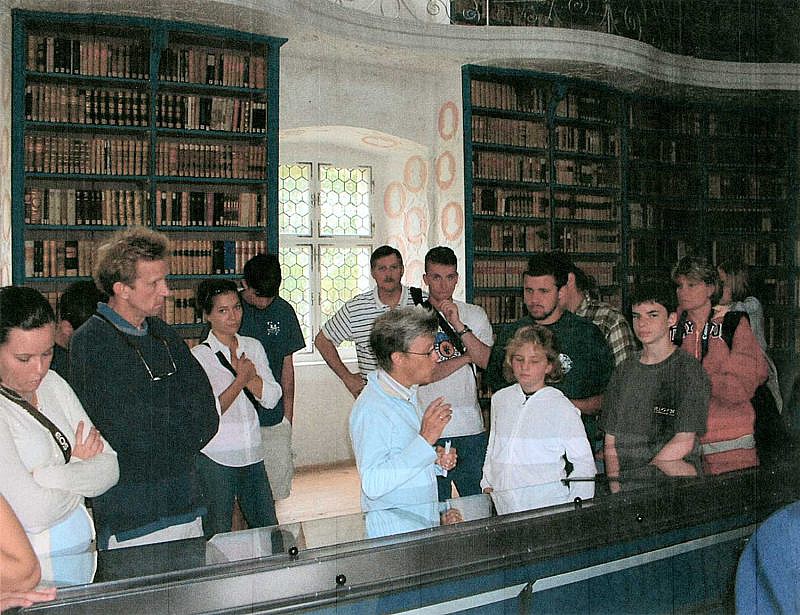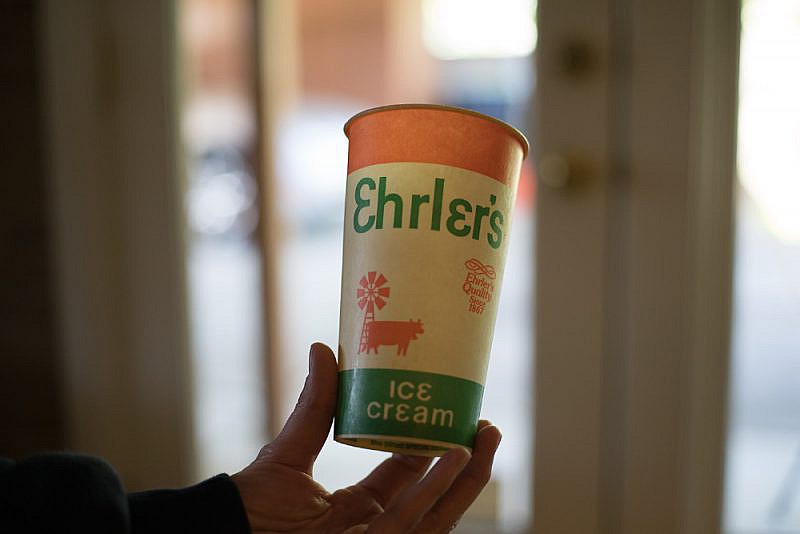As the third generation, they had managed the milk business of their grandfather since 1946 with utmost engagement and success. In their heyday they had 35000 customers, 19 city stores, more than a hundred co-workers, and 85 trucks.
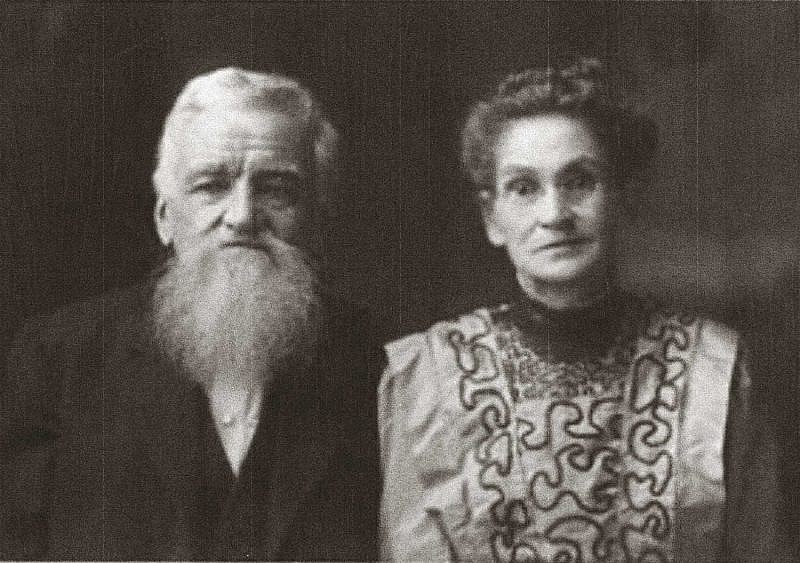
Over the entrance of his house he has pasted an Einsiedler sticker, and during our chat he offers us Einsiedler beer glasses filled with Louisville beer. John Michael (Mike) Ehrler observes: “My grandfather, Joseph Maria Ehrler came in 1857 at age 18 to Louisville from the village Sattel in the region of Einsiedeln. There were many children in the family, and they were poor. Emigration was the solution! Even before departure Joseph Maria had found a sponsor and gotten a work permit. Otherwise, he could not have entered.”
For the first years he worked in Louisville as a milker and laborer for the Swiss farmer Lohmoeller. “The Civil War years were hard. But grandfather was industrious, reliable, and thrifty. One attributed that to Swiss quite generally. Instead of asking for a wage, Joseph Maria asked his patron for a horse and wagon to build up something of his own.” Thus, ten years after his arrival in the new homeland, the ambitious young man started his own milk farm with three or four cows at Shelbyville Pike (now Shelbyville Rd). There were then about seven milk farms in the area, and in 1868 one began to use “Milchmann”, dairyman, as an occupational name for the first time.
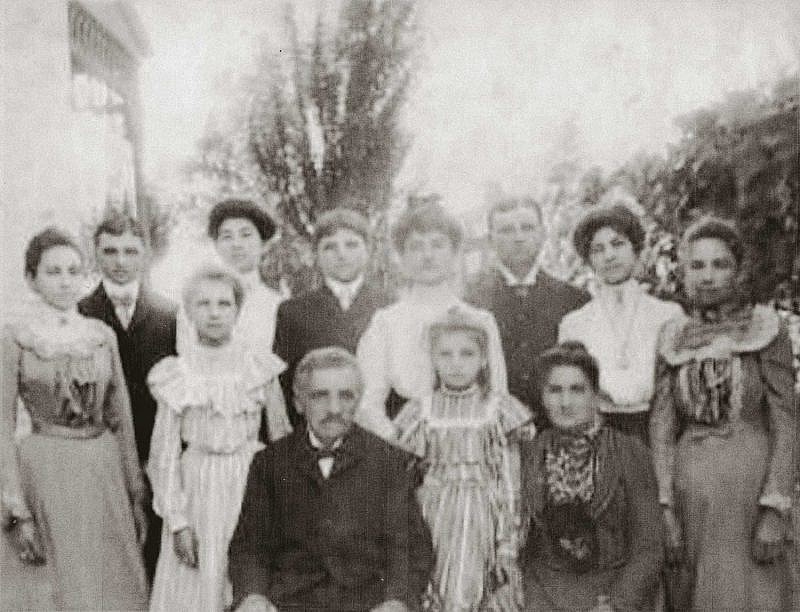
About the same time Joseph Maria asked his betrothed to come from Switzerland to America: Maria Elizabeth “Lizzie” Schönbächler from Willerzell. Before leaving, she had worked as a seamstress in the monastery Einsiedeln. On June 15, 1871, Joseph Maria was to marry his eleven years younger compatriot, Lizzy, in Louisville. Within nineteen years she was to give birth to ten children. Later, the enterprising Joseph Maria sold his land with 500 dollars profit in order to buy land on the east outside the city on Preston Street Road and to build up a larger enterprise. In 1912, the two sons, Alexander and Dominic Edward, joined the prospering business. Joseph Maria died in 1919. In the 1920s, the Ehrlers bought 40 acres (16 hectares) of land at the Poplar Level Road and thereby, once more, enlarged their enterprise.
In 1921, a great drama happened that disturbed the whole town of Louisville. Early one morning, a thief, who was after a moneybag, killed Alexander, the son of Joseph Maria and Maria Elizabeth Ehrler, on his milk tour.
Our other conversation partner Dominic (Bud) Ehrler, born in 1915, fully remembers his grandfather Josef Maria. “He spoke but very rough English, the white-haired, little man with the large beard. And in his funny accent he told us that in the beginning, he poured the milk for his customers from large pails, twice a day, seven days a week. On the farm the cows were milked and then the still warm milk was sold right away. He would strike out with horse and wagon, and customers would fetch the milk directly at the carriage.”
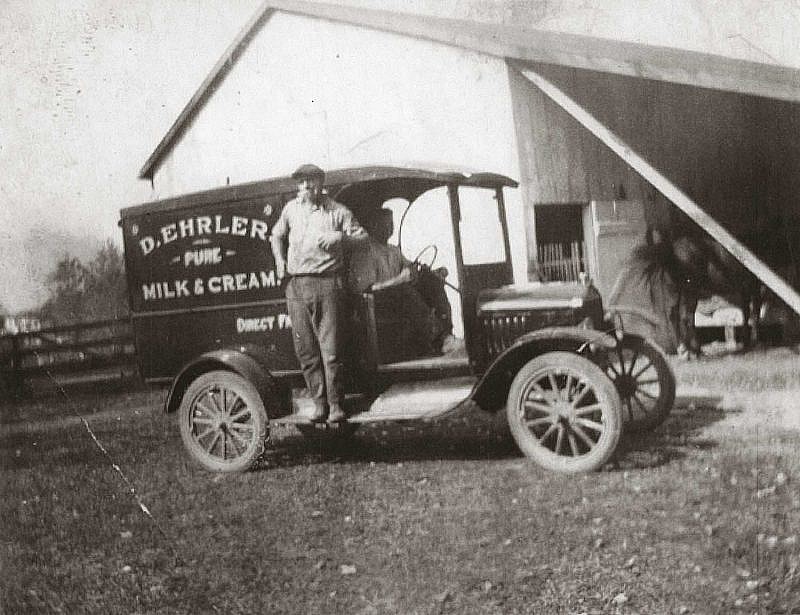
Over the years the number of Louisville’s milk farms had grown enormously, and Swiss, not in the least those from Einsiedeln, did their part. In the year 1880* there were 22, in 1890 75, and in 1910 even 116 officially registered milkmen; 75 percent had Swiss or German names. In 1907, furthermore, one counted 111 dairy farms with some 3200 cows. While in 1907 but one dairy was pasteurizing its milk, by 1920, already half the establishments where doing it. For long, however, many considered the word pasteurization a foreign term. Swiss milkmen opposed it vehemently for a long time. There were still no refrigerators, and cooling remained therefore quite difficult, especially during Kentucky’s hot summer days. Initially, milk containers were put into cold water, later into ice. Efficient cooling systems did not come into use until the 1920s and 1930s when trucks replaced horse-drawn wagons. Thus, needed investments grew enormously, a problem mainly for the many smaller firms.
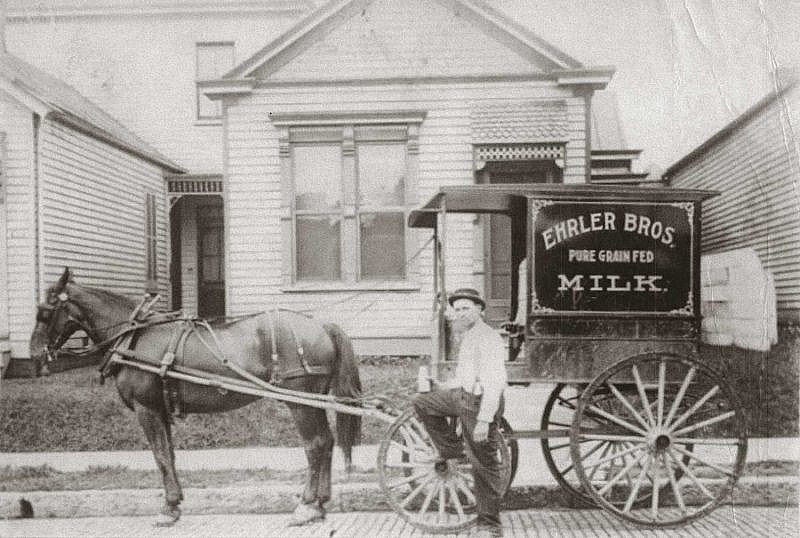
Dominic and Michael, the two “Grand Seigneurs” of the Louisville milk scene, fondly remember their father Dominic Edward Ehrler (1886 - 1954) who had married Sophie Amelia Bremer of German origin.
“Father didn’t talk good Swiss German, we neither. He had gotten but a limited formal education in the Catholic school, run by German nuns, and from early on he had to help on the farm. He told us often that he was proud to have Swiss roots. But he had no contacts in Switzerland. Why, we don’t know. In Louisville, he had many friends from the old homeland, was in the Gruetli Helvetia Society, and on weekends took us to the Swiss Hall. But he never went further than a hundred miles from Louisville!”
At home the four Ehrler boys had to tackle work with dispatch. “Every morning before school, we had to milk 33 cows. Our mother, Sophia Amelia Bremer Ehrler, passed away far too early in 1944. And when, in 1946, we youngsters returned from service in the war, there was no question: Join the business! Father had grown tired, thus we came to the rescue.” Together with him the Ehrler Brothers Jr. - Dominic Edward, Michael and Robert - successfully managed the business from 1950 on. “Milk production went very well. We didn’t want to do the milking ourselves anymore. We now got the milk from other Swiss farmers and pasteurized it.”
The range of products grew steadily. Besides milk there was also cream, cheese, butter, ice cream and much more. And thus the Ehrlers became Louisville’s largest independent providers of milk and milk products. Until 1967, all went well. Finally, Michael Ehrler became the sole owner of the Ehrler Dairy until the firm was sold in 1977. It had been far and wide the last one to sell milk in glass bottles. The emergence of large shopping centers meant the end of the Ehrler enterprise, successful for nearly a hundred years.
